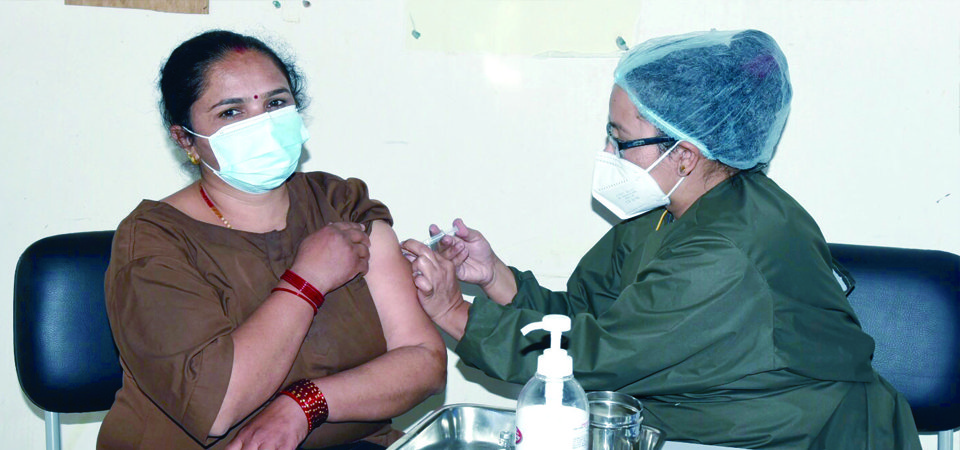COVID-19 explainer :
How will we know we've reached herd immunity?

Health officials around the world are racing to vaccinate enough people to stop the spread of COVID-19, but what qualifies as "enough" is still an open question.
The goal is to get to "herd immunity," which is when enough people have immunity, either from vaccination or a past infection, to stop uncontrolled spread.
Herd immunity doesn't make any one person immune, and outbreaks can still flare up. It means that a virus is no longer easily jumping from person to person, helping to protect those who are still vulnerable to catching it.
Nobody knows for sure what the herd immunity threshold is for the coronavirus, though many experts say it's 70% or higher. And the emergence of variants is further complicating the picture.
Here's what's known about the virus and herd immunity.
How is the herd immunity threshold calculated?
It's a formula based on how contagious a virus is -- or how many people catch the virus from one infected person, on average.
But the calculation offers only a broad target for when there might be a big drop off in spread. The figure could also vary by region.
"It's not 64.9 is terrible and 70.1 is fantastic," said Dr. Walter Orenstein, an infectious disease expert at Emory University.
Orenstein notes vaccination levels and other factors that affect spread could differ even within a city.
How do we know we've reached herd immunity?
Proof that we're nearing herd immunity would be a "disruption in the chain of transmission," said Ashley St. John, who studies immune systems at Duke-NUS Medical School at Singapore.
But don't wait for any big declaration that we've reached that milestone.
To determine whether to relax restrictions, health officials will be watching infection and hospitalization trends as vaccinations roll out. And those decisions are likely to begin long before the ideal herd immunity threshold is reached, though they will be gradual and vary by region.
In India, for instance, scientists believe that more people will need to be protected in densely populated cities, where the virus spreads faster, than in its vast countryside.
India plans to look for antibodies in people nationally to figure out what percentage of its nearly 1.4 billion people have already been infected, said Dr. Jayaprakash Muliyil, who is advising the government on virus surveillance. (AP)
Recent News

Do not make expressions casting dout on election: EC
14 Apr, 2022
CM Bhatta says may New Year 2079 BS inspire positive thinking
14 Apr, 2022
Three new cases, 44 recoveries in 24 hours
14 Apr, 2022
689 climbers of 84 teams so far acquire permits for climbing various peaks this spring season
14 Apr, 2022
How the rising cost of living crisis is impacting Nepal
14 Apr, 2022
US military confirms an interstellar meteor collided with Earth
14 Apr, 2022
Valneva Covid vaccine approved for use in UK
14 Apr, 2022
Chair Prachanda highlights need of unity among Maoist, Communist forces
14 Apr, 2022
Ranbir Kapoor and Alia Bhatt: Bollywood toasts star couple on wedding
14 Apr, 2022
President Bhandari confers decorations (Photo Feature)
14 Apr, 2022










